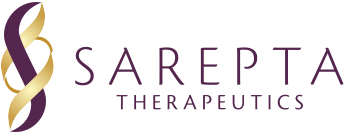« Back
AVI BioPharma Announces Positive Clinical Trial Results Delivering NEUGENE Antisense Drugs to the Central Nervous System
11/10/06 9:01 AM EST
Antisense drugs targeting hepatitis C virus, West Nile virus, and
the oncogene c-myc found in the CSF after systemic administration to
humans
PORTLAND, Ore.--(BUSINESS WIRE)--Nov. 10, 2006--AVI BioPharma, Inc. (Nasdaq:AVII), today announced human clinical trial results showing that three distinct NEUGENE(R) antisense drugs entered the cerebral spinal fluid (CSF) of healthy adult male volunteers following a single 100 mg dose via intravenous (IV) or subcutaneous (subq) injections. The three drugs used were AVI-4020, targeting West Nile virus (WNV); AVI-4065, targeting Hepatitis C virus (HCV); and AVI-4126, targeting the c-myc oncogene.
"We believe the presence and persistence of each of the three NEUGENE drugs in the CSF after a single administration suggest potentially unique therapeutic applications for this class of antisense drugs," said Dr. Peter O'Hanley, senior vice president of clinical development and regulatory affairs at AVI BioPharma. "It might be possible to treat central nervous system diseases like Alzheimer's disease, brain tumors and multiple sclerosis."
Among the three studies, a total of 29 adult male volunteers had evaluable drug levels in the CSF after a 100 mg administration of each NEUGENE drug. Eleven volunteers received AVI-4020 via IV, 12 received AVI-4065 via subq and six received AVI-4126 via IV. Four representative CSF samples were obtained from the volunteer cohort at each six-, 12- and 18-hour time point after a single dose administration (not all volunteers had samples taken at each time period).
For AVI-4020 treatment, all volunteers had detectable drug in the CSF at each of the three time points and at approximately the same levels, averaging 20.5 ng/ml CSF. The presence of AVI-4020 in the CSF was expected, based upon an earlier Phase I study in patients with suspected WNV infection.
For AVI-4065 treatment, all volunteers had detectable drug in the CSF at each of the three time points and at approximately the same level, averaging 33.3 ng/ml CSF. This amount of drug in the CSF was about 60 percent higher than drug levels found in AVI-4020-treated volunteers and is believed to be related to the differences between the nucleotide motifs.
In the case of AVI-4126 treatment, there was no detectable drug in the CSF at six hours among the four volunteers from whom samples were taken at that time point. Two of four volunteers had detectable drug in the CSF at 12 hours, and three of four volunteers had detectable drug in the CSF at 18 hours. Among AVI-4126 detectable CSF samples, there were approximately equivalent amounts of drug detected at the latter two time points, averaging 13.2 ng/ml CSF. AVI scientists believe that the variability of CSF penetration for this drug also relates to the intrinsic differences in the nucleotide motif versus the other test drugs.
AVI believes its NEUGENE antisense rapid response therapeutics will play a significant role in the future of antiviral therapeutics, including in treating emerging infectious diseases that threaten public health, or in addressing bioterrorism.
AVI has the manufacturing capacity to produce clinical-grade NEUGENE antiviral therapeutics, targeting viral pathogens, for a limited number of patients within days. NEUGENES are synthetic compounds that mirror a critical portion of a disease-causing organism's genetic code and bind to specific portions of the target genetic sequence. Like a key in a lock, NEUGENE antisense compounds are designed to match up precisely with a specific gene or viral sequence, blocking its function.
About AVI BioPharma
AVI BioPharma develops therapeutic products for the treatment of life-threatening diseases using third-generation NEUGENE antisense drugs. AVI's lead NEUGENE antisense compound is designed to target cell proliferation disorders, including cardiovascular restenosis, cancer and polycystic kidney disease. In addition to targeting specific genes in the body, AVI's antiviral program uses NEUGENE antisense compounds to combat disease by targeting single-stranded RNA viruses, including West Nile virus, hepatitis C virus, dengue virus, Ebola virus and influenza A virus. AVI has introduced a NEUGENE-based exon-skipping technology called ESPRIT therapy. More information about AVI is available on the company's Web site at http://www.avibio.com.
"Safe Harbor" Statement under the Private Securities Litigation Reform Act of 1995: The statements that are not historical facts contained in this release are forward-looking statements that involve risks and uncertainties, including, but not limited to, the results of research and development efforts, the results of preclinical and clinical testing, the effect of regulation by the FDA and other agencies, the impact of competitive products, product development, commercialization and technological difficulties, and other risks detailed in the company's Securities and Exchange Commission filings.
CONTACT: AVI BioPharma, Inc.
Michael Hubbard (hubbard@avibio.com)
503-227-0554
or
Investor Contacts:
Lippert/Heilshorn & Associates Inc.
Jody Cain (jcain@lhai.com)
Brandi Floberg (bfloberg@lhai.com)
310-691-7100
or
Press Contact:
Waggener Edstrom Worldwide
Bioscience and Healthcare Practice
Jenny Moede (jmoede@waggeneredstrom.com)
503-443-7000
SOURCE: AVI BioPharma, Inc.
This section of our website may contain dated or archived information which should not be considered current and may no longer be accurate. For current information, you are encouraged to review our most recent official corporate documents on file with the U.S. Securities and Exchange Commission.
